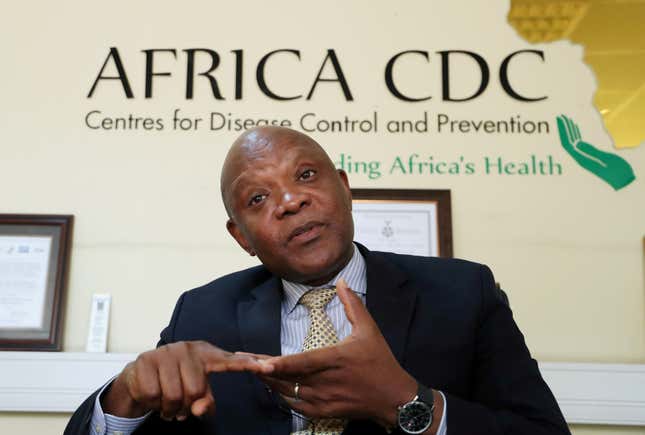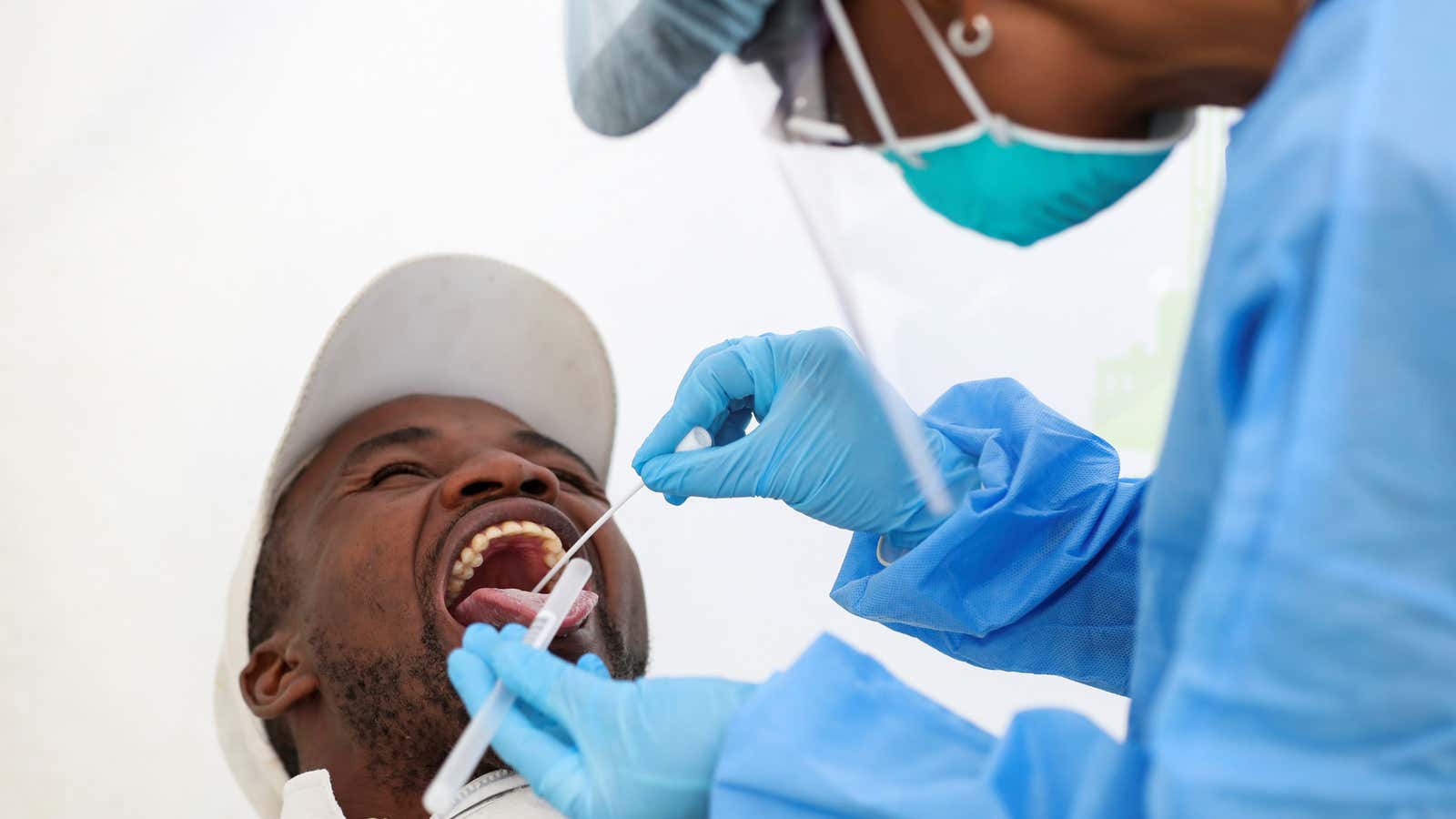After a slow start, the number of confirmed Covid-19 cases has surged in African countries with more than 51,000 people now suffering from the disease. Officials expect that number to continue rising but a lack of testing is hindering countries’ ability to get ahead of the novel coronavirus, which causes the disease.
“Lack of access to diagnostics is Africa’s Achilles heel,” wrote John Nkengasong, head of the Africa Centres for Disease Control and Prevention wrote in an opinion piece in Nature last week. African countries are struggling to offer widespread testing as global protectionism and “a failure of international solidarity” has pushed them out of the diagnostics market.
To be sure, even the world’s largest economies have had their struggles with obtaining reagents and personal protective equipment during this period, so much so many of these countries are focusing on their own domestic crises and limiting their exports of medical materials. “African countries have funds to pay for reagents but cannot buy them,” says Nkengasong.

The African CDC and the African Union last month launched the Partnership to Accelerate COVID-19 Testing (PACT), which will coordinate procurement of diagnostics and medical equipment for countries on the continent. It aims to test 10-million Africans in the next six months. But even that is less than 1% of the continent’s 1.2 billion population.
The Covid-19 crisis has highlighted African countries dependence on more developed countries to meet their medical requirements.
“There is expertise in Africa, but to acquire the reagents or chemicals is a challenge,” says Martin Antonio, a professor of molecular microbiology and global health at the London School of Hygiene and Tropical Medicine and based in The Gambia. The ingredients that go into the tests, such as the enzymes, are not available in Africa.
South Africa, although it has less than 5% of the continent’s population, was responsible for just under a third of Africa’s tests, according to a data survey by Reuters. Nigeria, which has more than three times South Africa’s population, accounts for 2% of the continent’s testing.
But even South Africa, whose strong international research networks for HIV and tuberculosis have aided its coronavirus battle, has to rely on international largesse to access test kits, as it does not manufacture the required chemicals or test kits locally.
The Covid-19 crisis has emphasized the existing disparity in access to medical equipment, as well as the lack of research that has gone into ensuring health security on the continent through research.
“African governments do not invest in research and technology, but this is done in developed countries—even though our ministers have promised time and time again,” says Antonio.
“Let’s hope that the Covid-19 [crisis] will wake up African countries to do that. It’s not that they don’t promise – the African Union promised to invest in research, but they just don’t do it.”
Sign up to the Quartz Africa Weekly Brief here for news and analysis on African business, tech and innovation in your inbox
